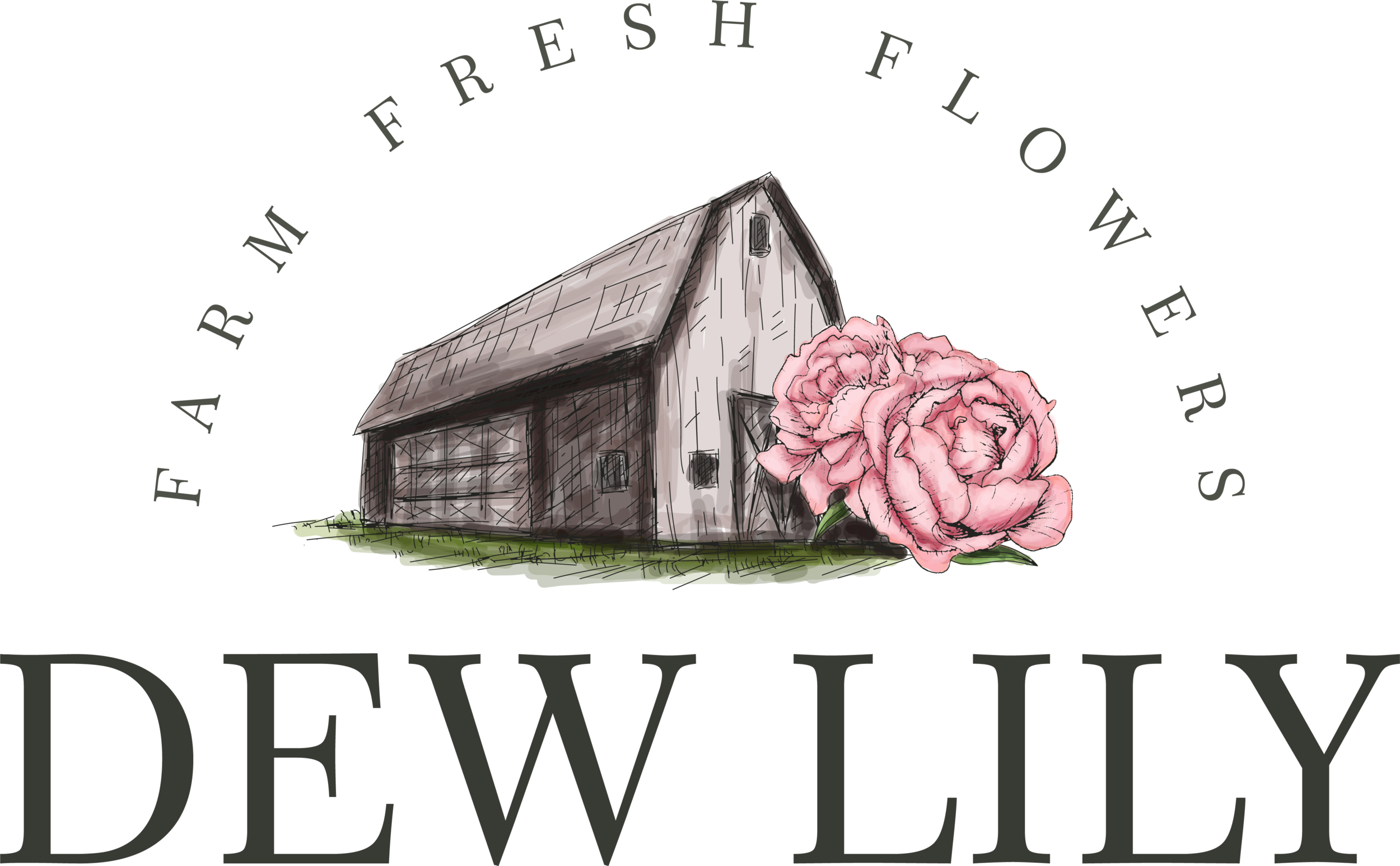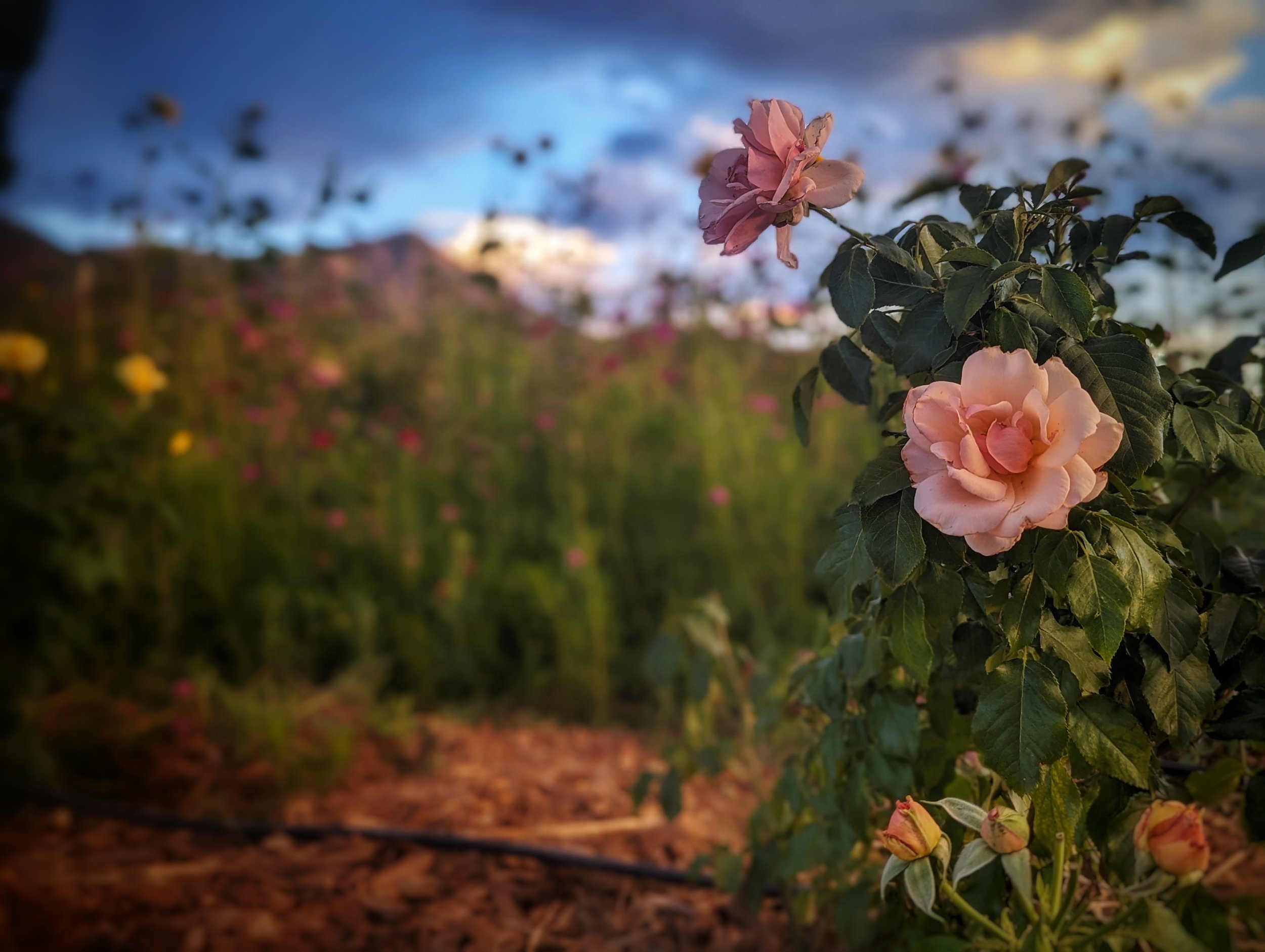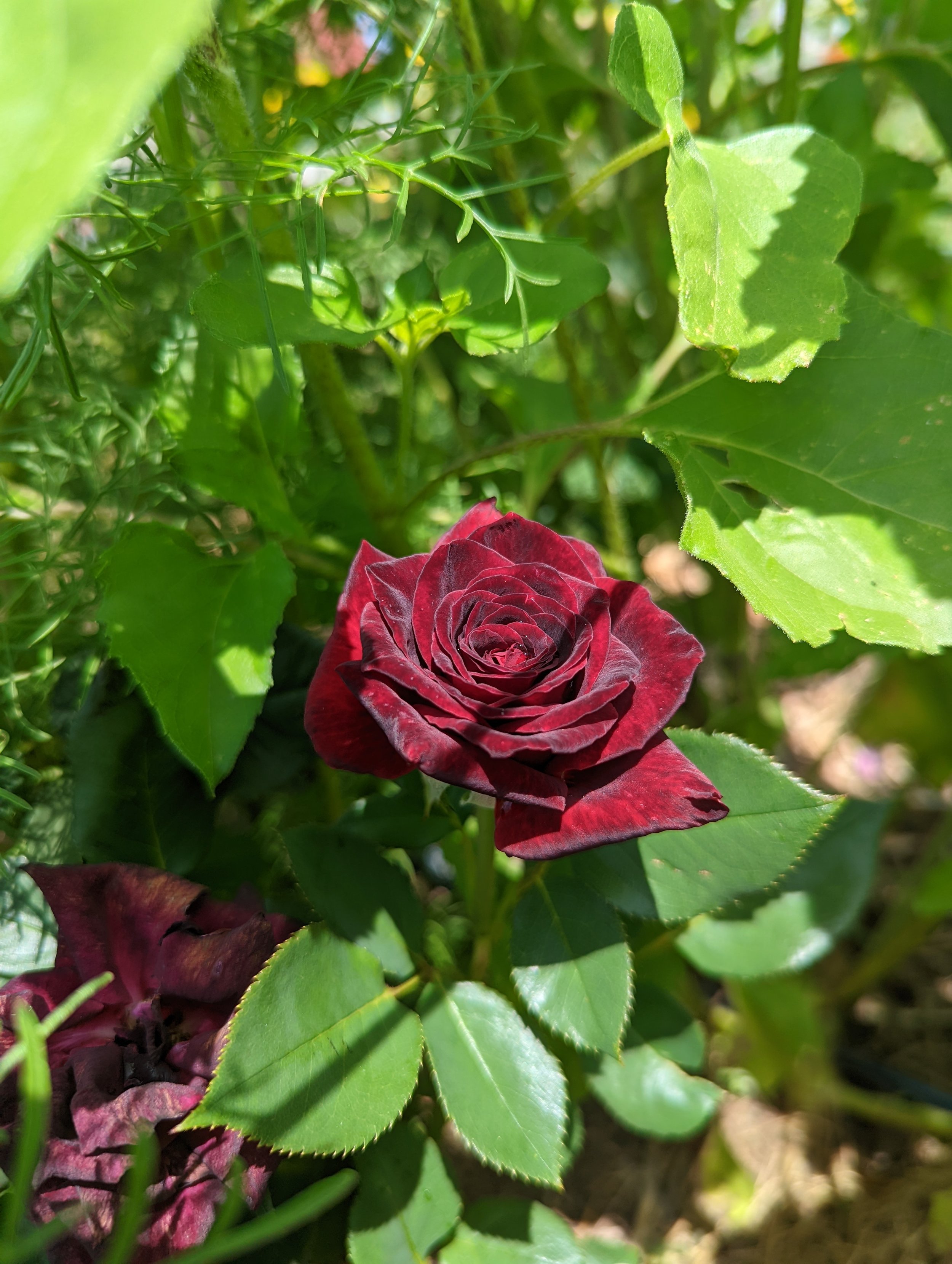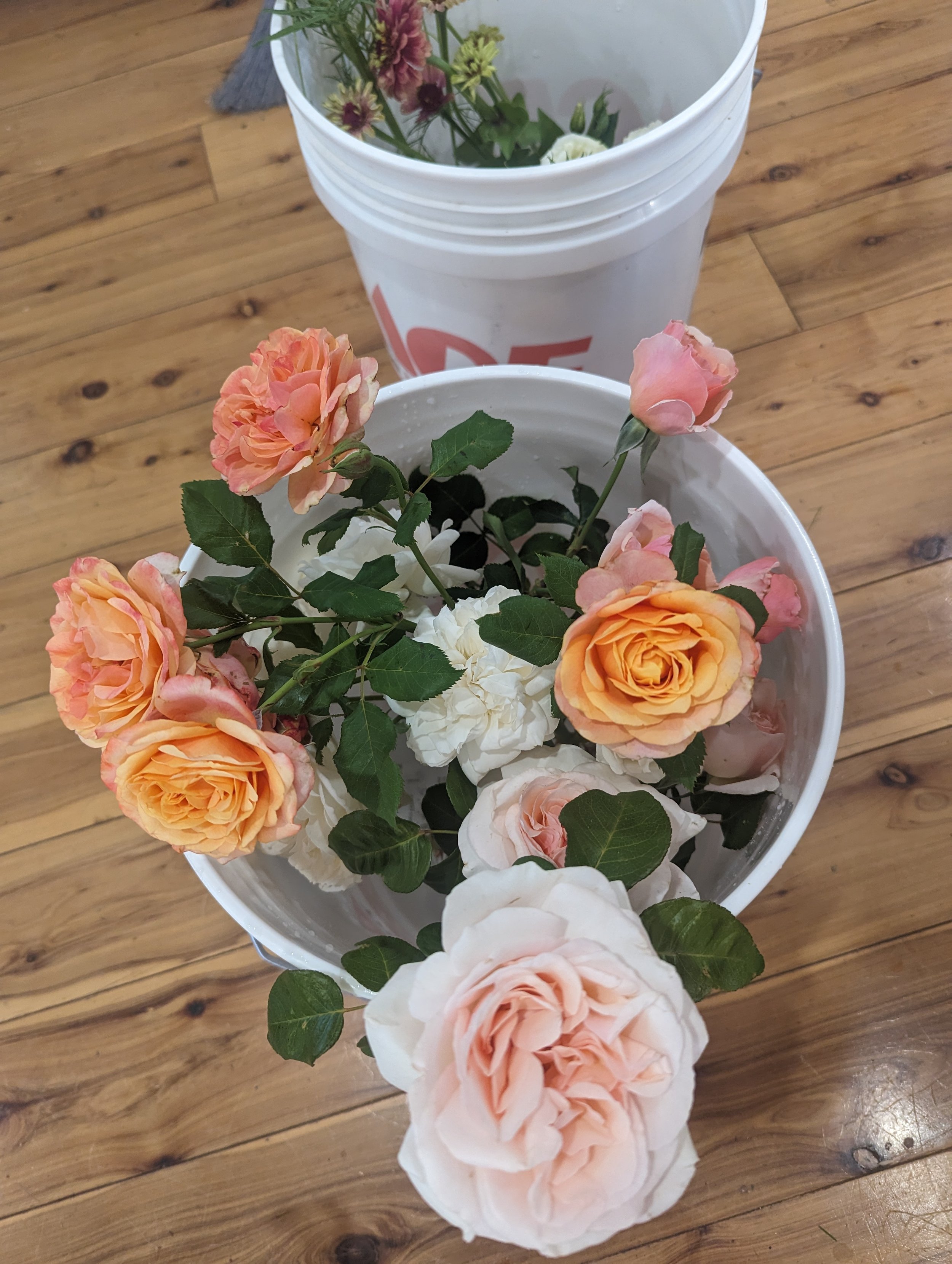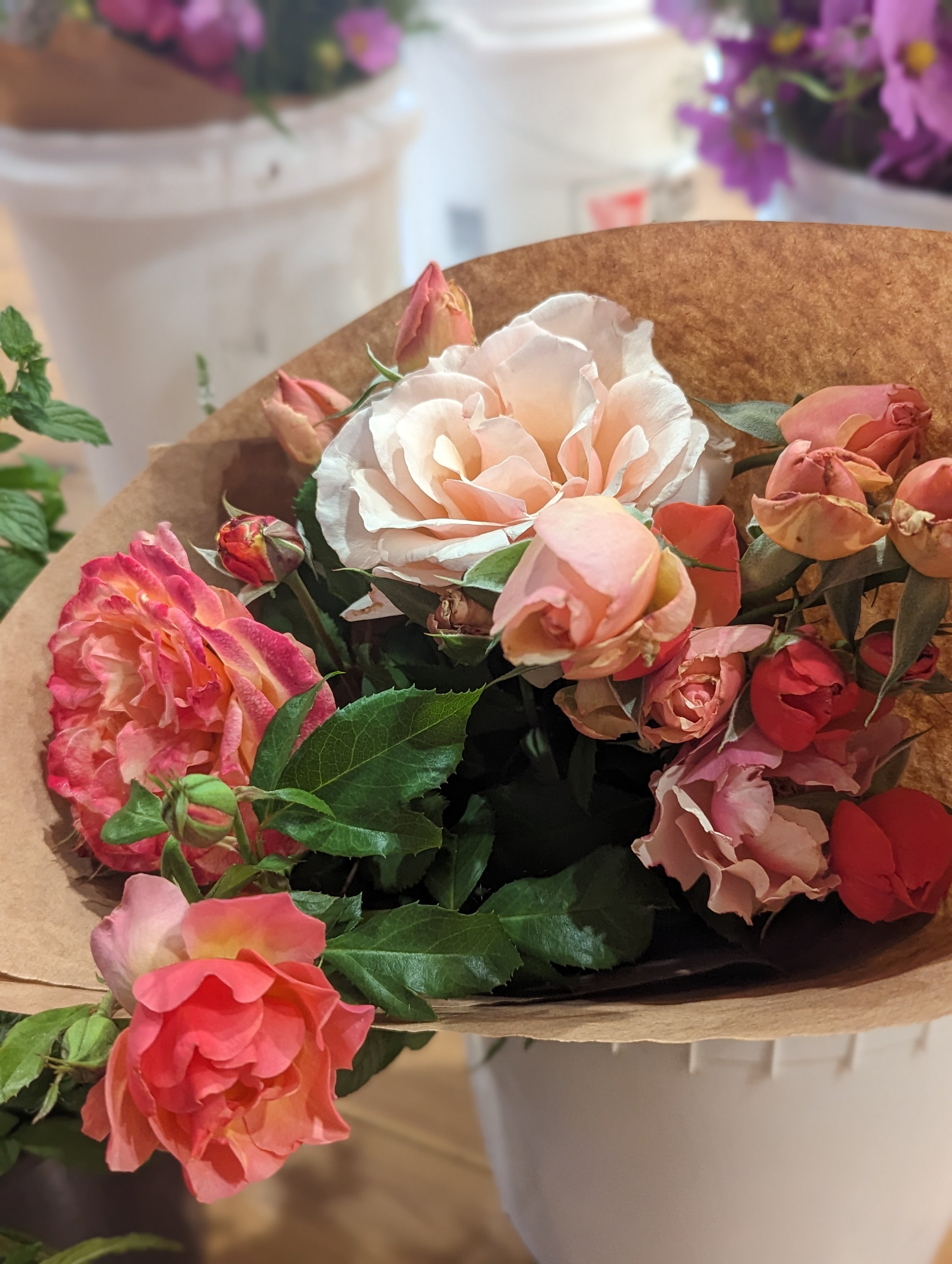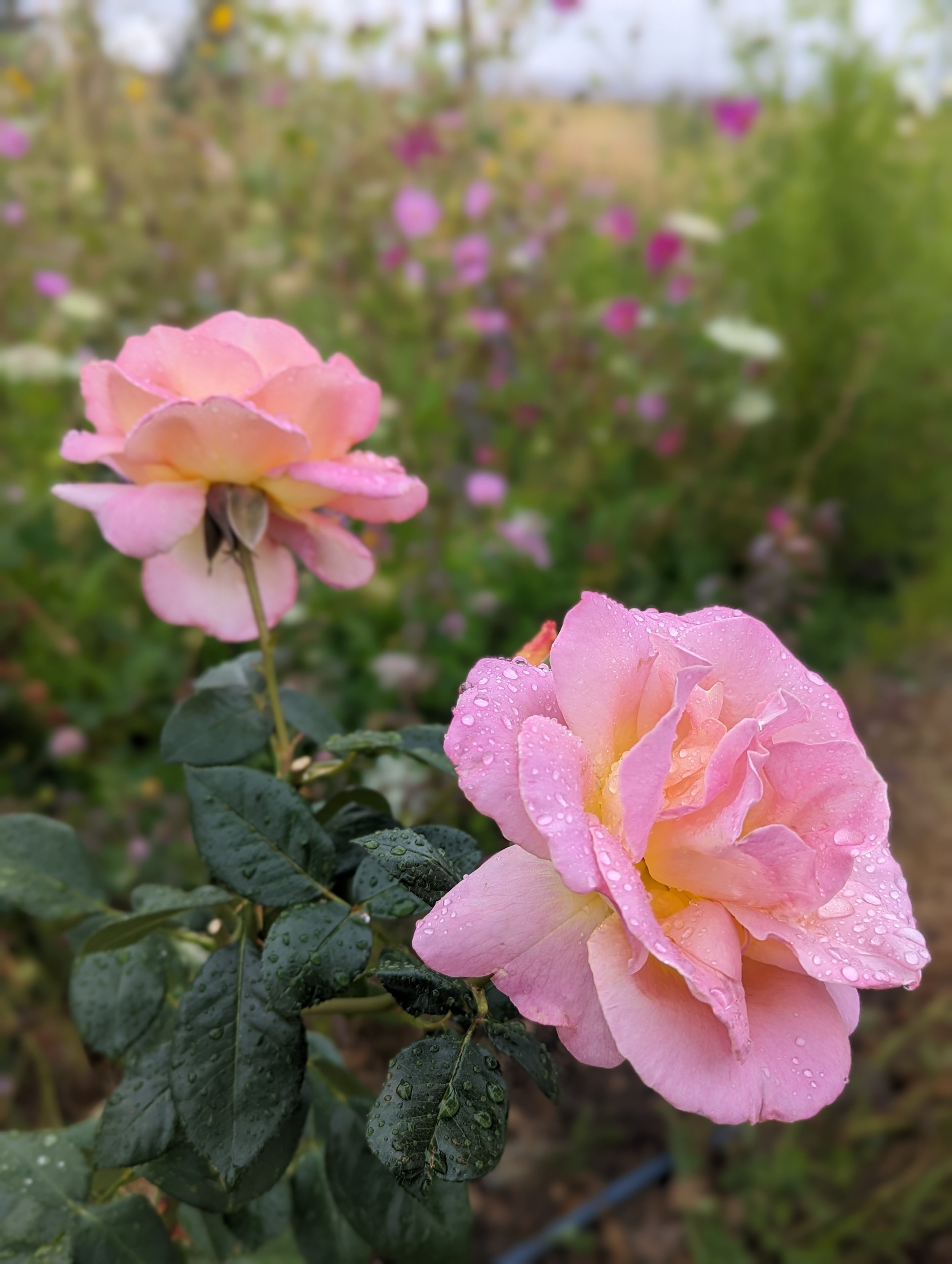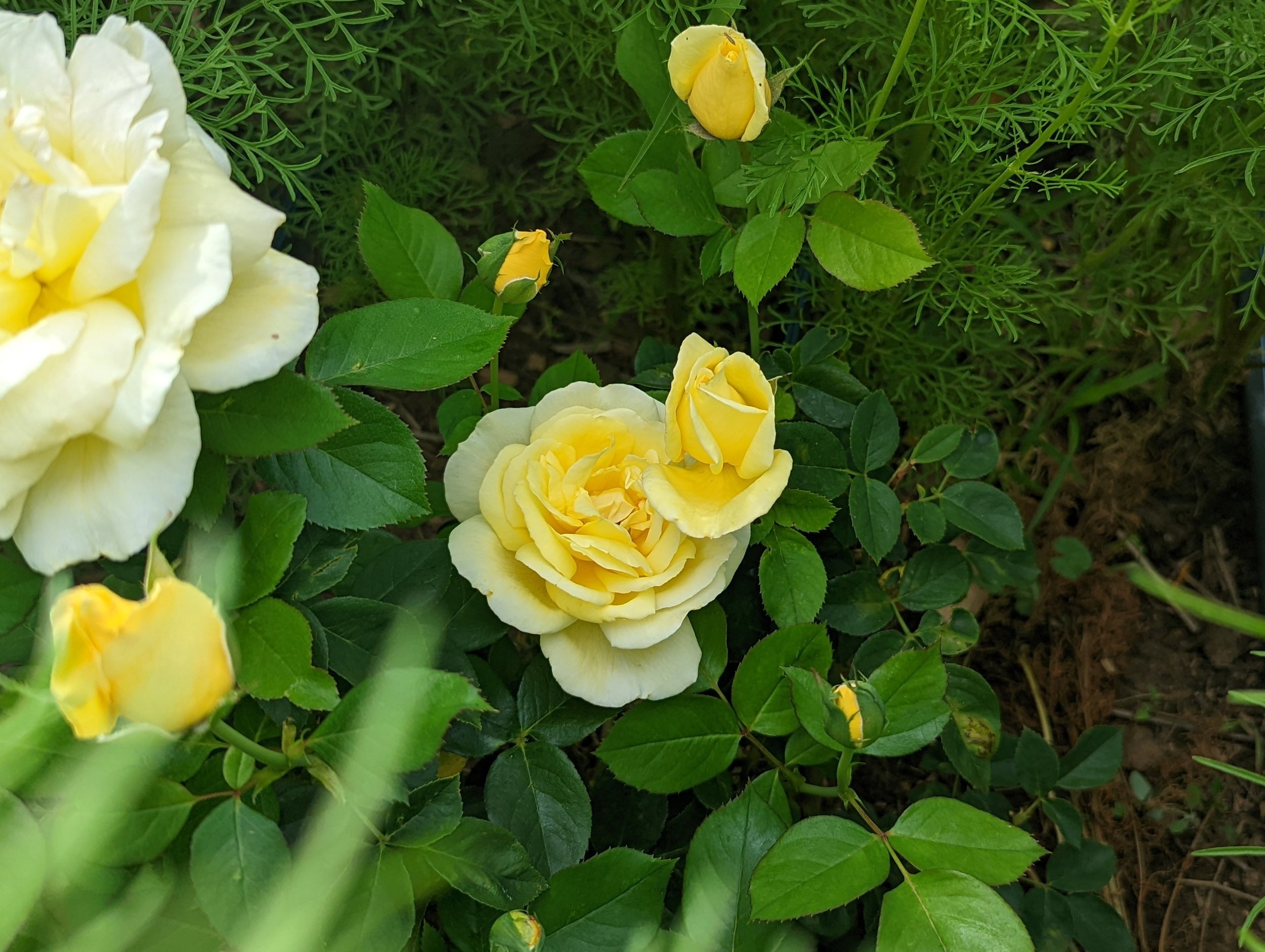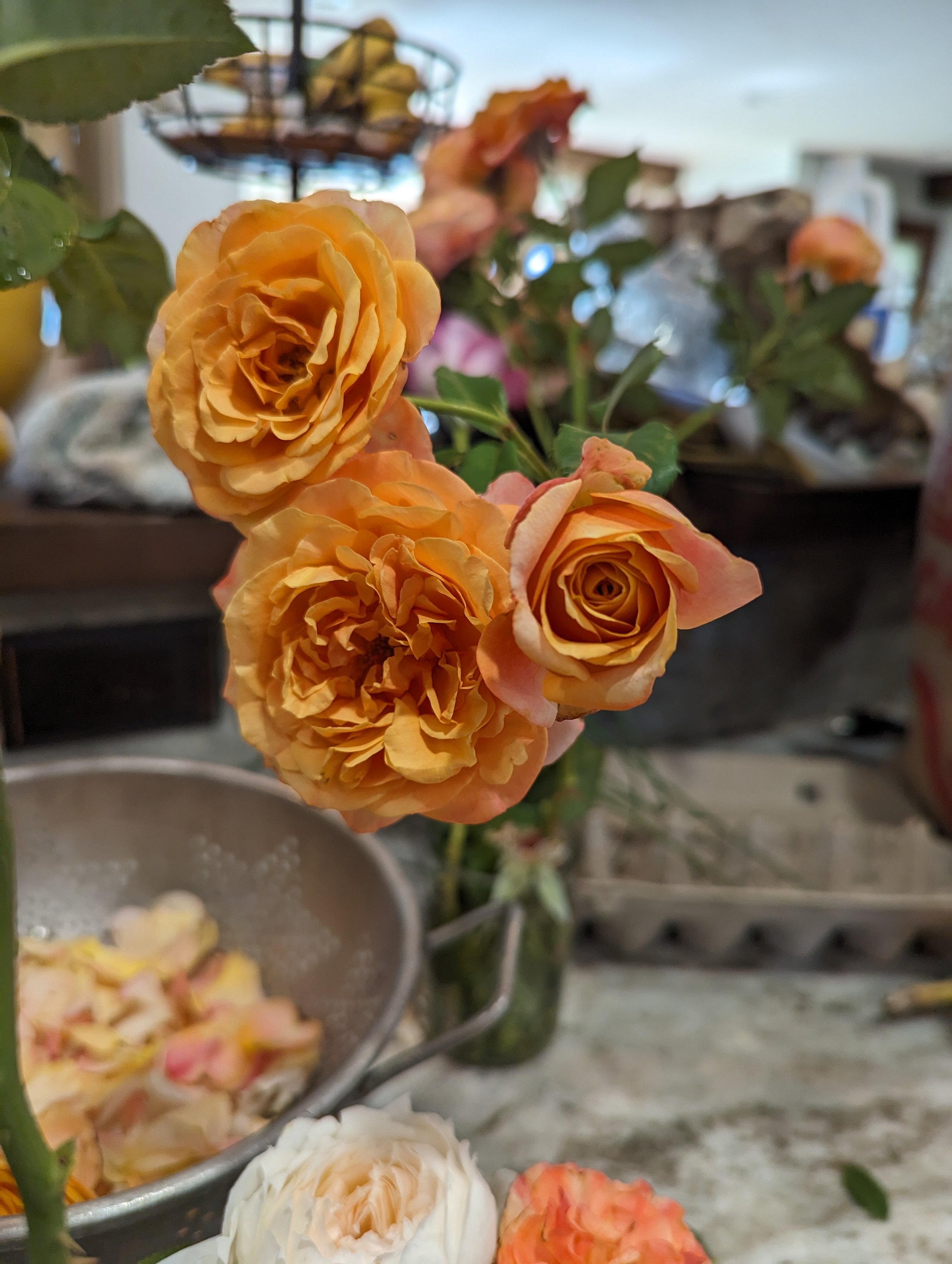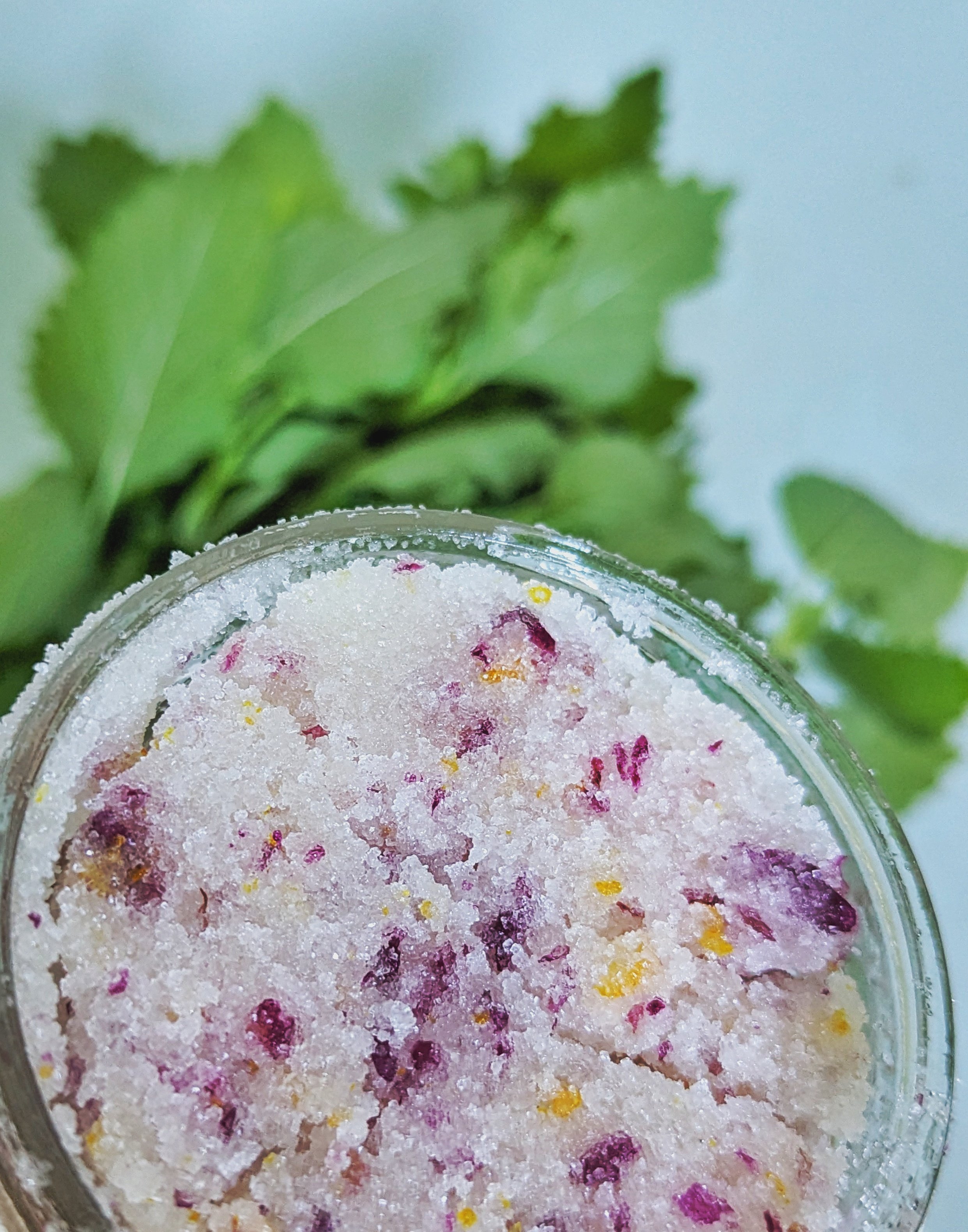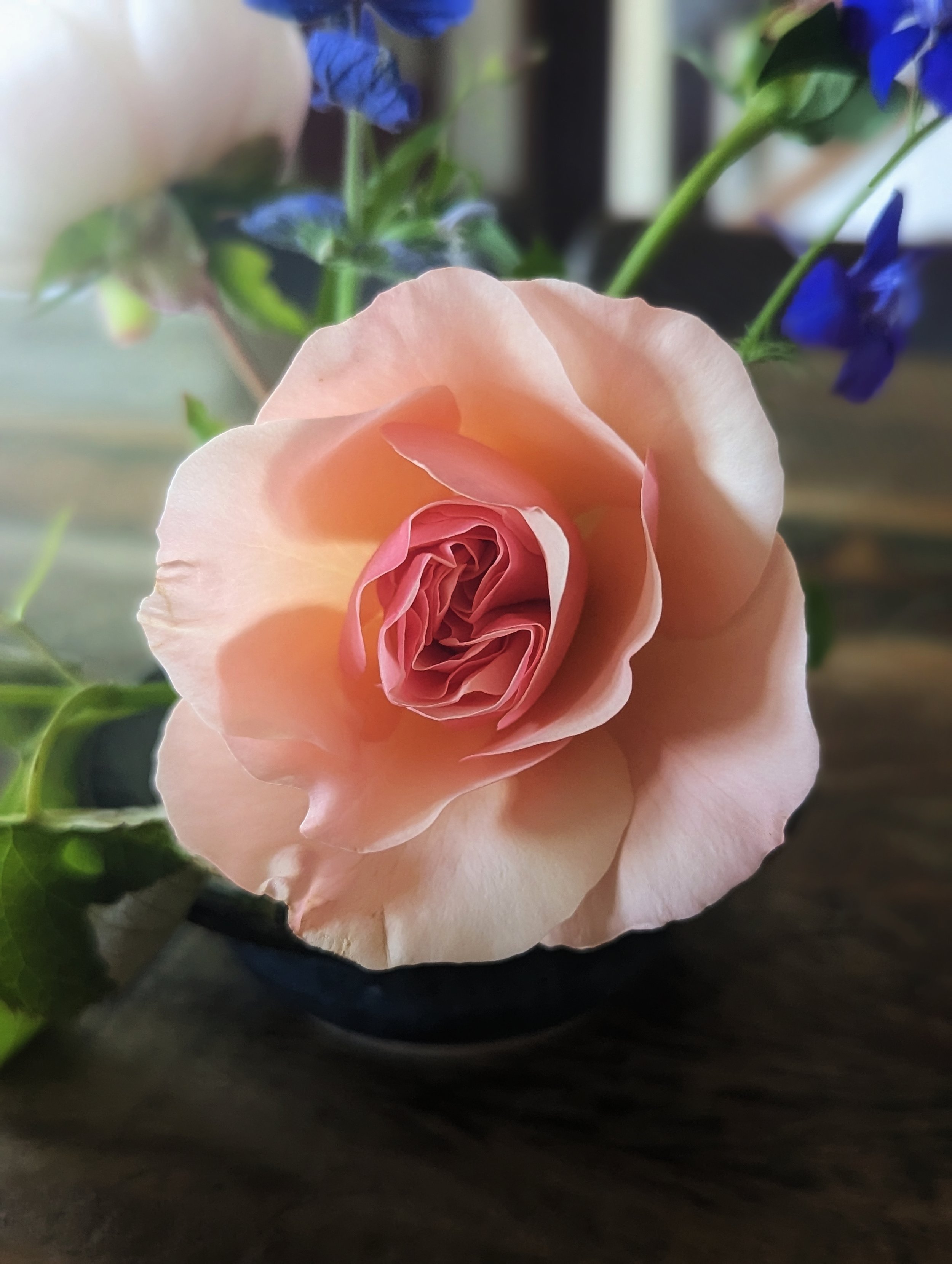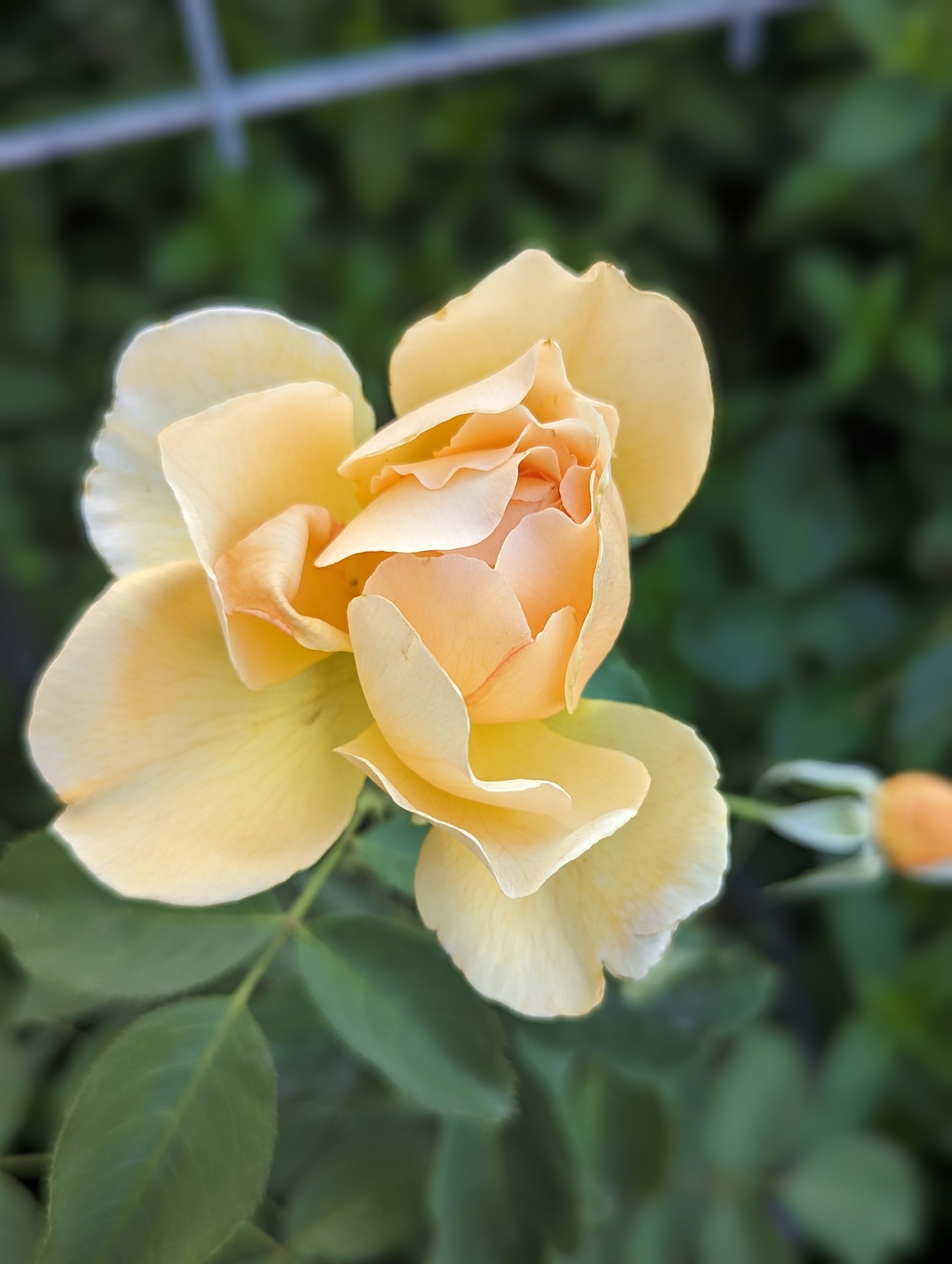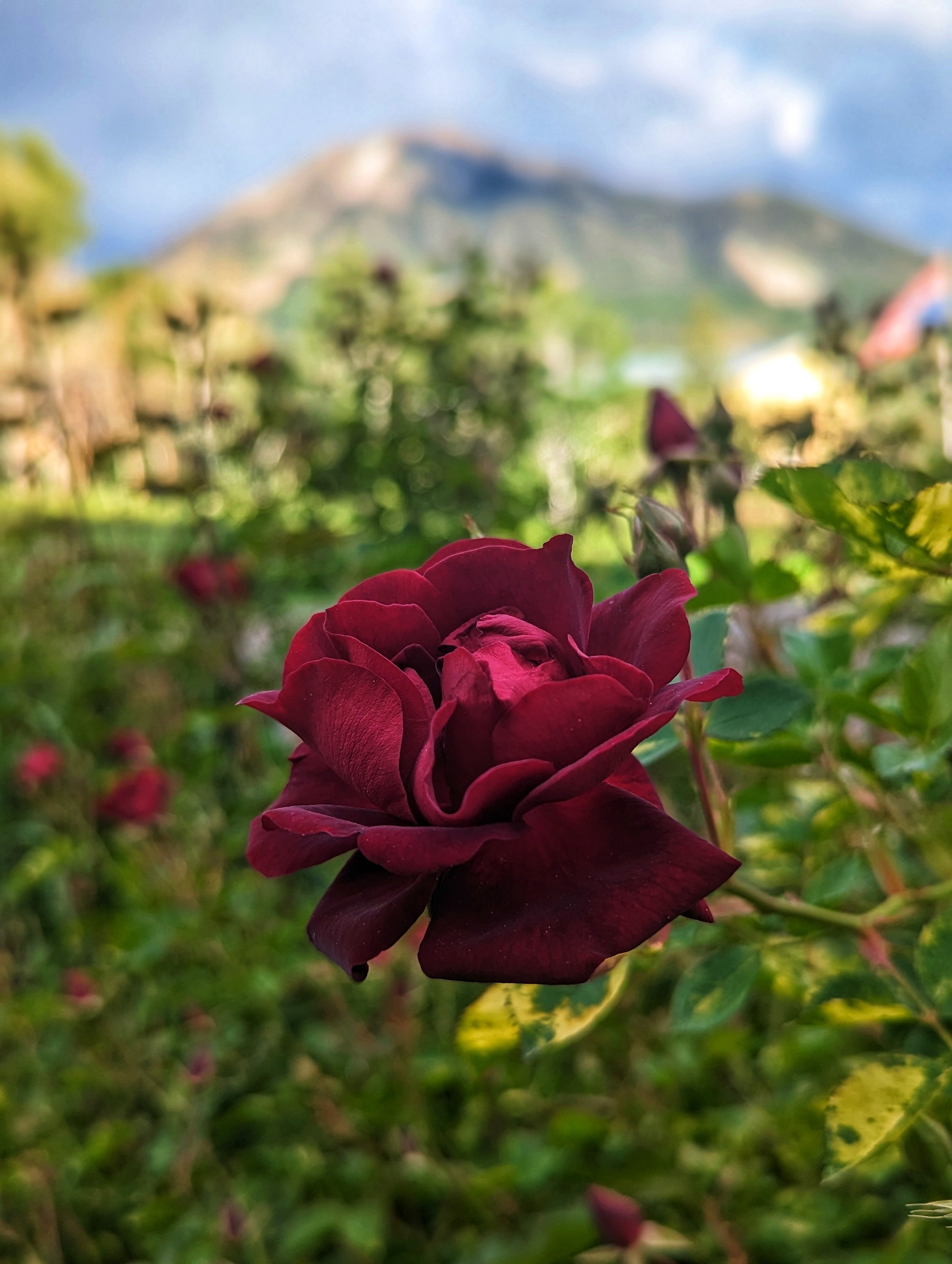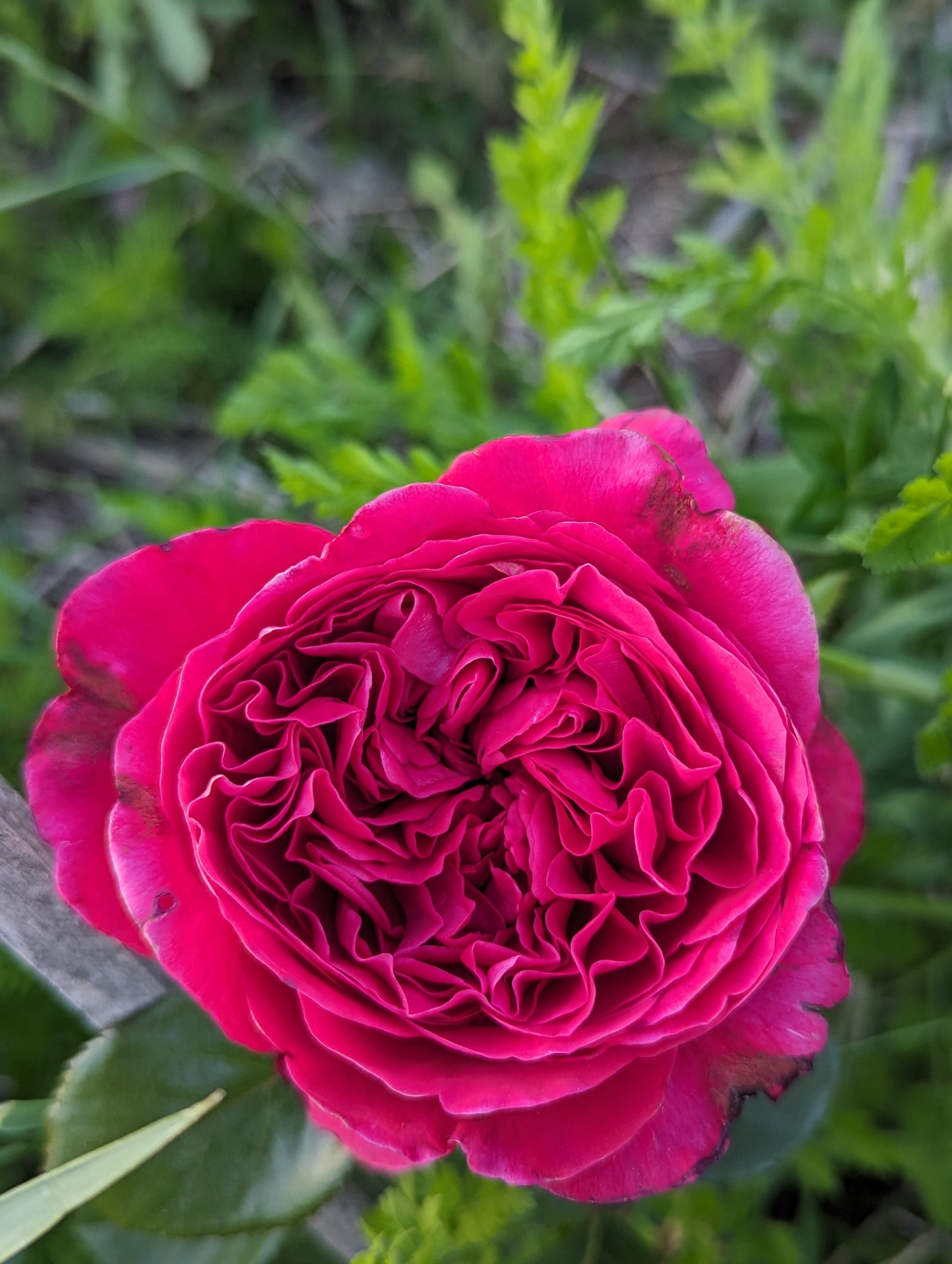Growing Garden Roses for Cut Flowers & Herbal Uses
I’ve been recently pondering why I've invested so heavily in roses on my little flower farm these last two seasons.
There are some logical reasons, of course, but roses also carry an immense amount of energetic, symbolic, herbal, and medicinal value.
Logical Reasons for Growing Garden Roses as Cut Flowers in Colorado
Some of the logical reasons include the fact that I’m not the best at watering seedlings (so I prefer perennials in general), not too many people I know are growing roses on the Western Slope of Colorado as cut flowers, the varieties I chose often don’t ship well but are very much loved by brides, florists, and rose lovers, the scents are AMAZING, I can create value-added products with the petals, and I like a challenge!
The Challenge of Starting From Seed and the Benefits of Growing Perennials as Cut Flowers
While I love so many annual flowers and have grown amazing eucalyptus and lisianthus and other “hard to grow from seed” annuals, the reality is that growing annuals takes some serious day-to-day commitment in our zone, at least until they are established. While perennials take patience and a long-term time commitment, I love the ease of their maintenance, and ability to propagate and reproduce, year after year. Because of this, I have been working to establish a few varieties of perennials as my main source of flowers. Every year, I say I won’t start from seed and inevitably do just that, because, there simply are so many lovely annuals I miss when they aren’t tucked in the beds of my garden.
Trends in Flower Farming and Floristry
and the growing flower farming community on the Western Slope of Colorado
There are trends in the flower farming world, and it’s often difficult to predict a fad from a worthwhile investment. Knowing where to source, what diseases to be aware of, pest issues, when to start, and so much more goes into the risk versus the worth of these trends. Let alone who the buyers will be if you successfully manage to grow a gorgeous crop of the latest must-have color. Roses are happy in my zone, with deer being the biggest challenge of yet. Driving around the Western Slope of Colorado from late spring to late fall, you can see happy established rose bushes in many yards in all the small towns. Likely planted by someone's grandma many, many years ago. Since I started my little patch of flower farm in 2019, there have been countless new flower farmers popping up across the Western Slope. I love the growing flower community and can’t wait to see where it takes us. Differentiating my offerings through perennials will hopefully solidify my niche in the ever-growing flower farming community on the Western Slope.
Why Grow or Purchase Locally Grown Flowers?
and how to choose what type of roses to grow
The varieties I have chosen are based on petal counts, variety of color, production, and scent. The topic of American Grown versus imported cut flowers has a wild history that perhaps I’ll share in another post. I will say, that the process of importing and using roses not grown in the United States involves inhuman labor practices, American tax dollars being waisted as “subsidies” against the unsuccessful war on drugs, an alarming amount of fertilizers and chemicals used both in growing and processing (putting farm workers and the end users - florist and shoppers in serious risk of exposure to these chemicals), and of course the travel the roses endure to arrive at their final destination (often ships and airplanes, then refrigerated trucks, and likely a few more driving stops along the way).
Most, if not nearly all, roses available to florists come from overseas and have been bred to survive the brutality of being shipped and flown en masse, out of water for days at a time. The science behind the breading of these roses is beyond my scope, but one thing is clear - those roses have little to no scent.
When was the last time you smelled a locally grown garden rose? They’re all different and like fine wines, with hints of honey, citrus, and lavender, some gentle and sweet, others subtle or strong. There really is nothing like smelling a fresh garden rose.
Value-Added and Herbal Uses of Garden Roses
Those scents lend well to creating herbal and medicinal products. Hydrsols and rose waters, tea, infused oils, tinctures, rose petal-infused honey, facial scrubs, and infused sugar scrubs are just a few of the ways I have been dabbling with rose petals and rose hips. I hope to one day have my formulations down well enough to offer these products publicly; for now, they’re saved for friends and family who put up with my experimentations.
hydrating bare root roses after receiving them in the mail, and before planting in early spring.
The Magic of Growing Roses
The less logical side of me has been drawn to roses from a very young age. I find them enchanting and challenging. They’re simple and complex all at once. Some thrive on tender loving care, and others beg to be ignored in order to reach their full potential. Ordering bare-root roses, a season ahead of when they’ll be planted, and the nervous joy of watching a clump of dead-looking wood turn into a rose bush is thrilling. There is simply magic in roses and tending them. All that beauty and scent surrounded by thorns. Producing buds and petals and later rose hips, many times in a season. Going dormant and surviving a cold, harsh winter to send out fresh new growth in the spring. It’s magic.
Growing Up With a Love of Roses
and a little rebellion
I’m blessed to have grown up with gardening with both of my grandmothers and my mother. Flowers have just always been a part of my life, likely in a similar way as they were in your childhood.
When I was in middle school, I started a rose garden. I can't remember what exactly inspired me to start such a project at that age. I loved it. I had four bushes and no clue what I was doing. The Japanese Beetles attacked them terribly. They lived for a while despite my ignorance of how to tend them. My grandma bought me a 5th one, which I was not permitted to plant (stepdad issues are real issues; I'm still working on that one). But don’t be dismayed; a lovely friend allowed me to plant the bush in her yard, and, for years, would send me images and words of it thriving and the joy it brought her. It wasn’t until I was well into my second season with roses that I even recalled that memory. So I suppose that young girl who wanted to grow roses never truly went away, rebelled just a bit, and is now, 20-30 rose bushes deep, with a whole lot left to learn.
Symbolism and Medicinal Benefits of Roses
Roses' symbolism of the heart, love, faith, and beauty combined with its medicinal benefits on the heart, emotional state, skin (when taken internally via the liver and topically), and spleen are even more reasons to love this special perennial. Rose offers both cooling and astringent energetics. It’s both bitter and sweet, allowing for cleansing and toning. Rose hips are full of vitamins and minerals, most notably Vitamin C, but also vitamins A and E, along with B complex vitamins, calcium, magnesium, and potassium. Most herbalists suggest the use of wild roses; however, since I know and trust my own sustainable growing practices, I choose to leave the wild rose petals for the grouse, rabbits, and deer and focus instead on collecting a variety from my garden. If you choose to work with roses, be sure to source from a trusted location free from chemicals, even the “organic” ones.
I would love to hear your rose love stories, questions on growing garden roses to enjoy as cut flowers, or whatever else you may be curious to learn together!
